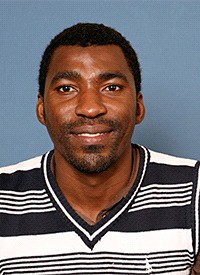Joseph Sambali
Biography
Joseph Sambali’s PhD research explored how communities in Ngara, Tanzania perceive risk of environment-related diseases such as malaria and diarrhoeal disease. Prior to his PhD, Joseph was trained in veterinary medicine and was a practicing veterinarian in Tanzania for five years. He was also a researcher at the Ifakara Health Institute in Tanzania that studies environment-related diseases, especially malaria. At Ifakara Joseph became interested in the social science of how people perceive health practices and disease, which is important for developing effective health policy to improve the health of communities vulnerable to disease.

Research:
Understanding Community Perception of Health Risk and Disease in Ngara, Tanzania
Joseph pursued research to understand how a person’s social and cultural values influence their behaviour in response to three of the most common diseases in Tanzania: malaria, acute respiratory infection and diarrhoeal disease. Experts, such as scientists, and health professionals, often view risk differently from the public. While experts may rely upon data collected from scientific research to inform their understanding of risk, the public will often draw on other forms of information to evaluate risk that is beyond scientific or medical advice.
The highest priorities for village communities in Ngara are sustaining important relationships, such as family ties. In order to create effective health policy, health promotion and advice needs to respond to communities’ social relationships and living conditions. For his PhD, Joseph investigated the importance of social relationships and values for how communities in Ngara, Tanzania perceive health practices such as hand washing or interventions to combat malaria. The outcomes contributed to understanding how to develop new ways of integrating health practices into communities.
Rural communities in Tanzania usually prioritise their social practices and identity over concerns for health risks. For example, they may not view basic health practices such as hand washing as necessary, believing that it is only for ‘westerners’ or people living in urban areas. But when the risk of disease jeopardises their social and cultural values it may allow for opportunities to integrate public health practices into communities. Joseph sought a common understanding between villagers’ values and expert medical advice in order to find a better way to implement health interventions.
Thesis:
SAMBALI, JOSEPH, JAMES (2015) Exploring health risks and Resilience in a Rural Population in the Context of Environment-Related Diseases, Ngara, Tanzania, Durham theses, Durham University. Available at Durham E-Theses Online: http://etheses.dur.ac.uk/11165/
